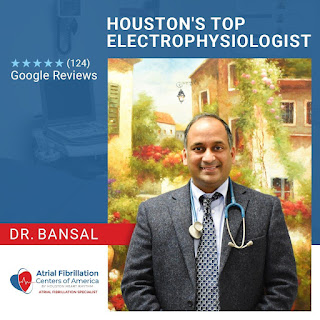When to Call an Electrophysiologist
A Cardiac electrophysiologist is a heart doctor who specializes in managing irregular heart rhythms called arrhythmias. If you are experiencing potential signs of an arrhythmia, consulting an electrophysiologist for evaluation and treatment can help prevent serious complications.
1. Palpitations
Palpitations can feel like your heart is fluttering, pounding, or skipping beats. They may be occasional or frequent. While palpitations are often harmless, recurrent palpitations or those accompanied by symptoms like lightheadedness, chest pain, or shortness of breath should be evaluated. An electrophysiologist can perform tests to determine if the palpitations are caused by an arrhythmia and recommend treatment if needed.
2. Dizziness, Lightheadedness, and Fainting
Brief episodes of lightheadedness or dizziness may not be concerning. However, recurrent dizziness or fainting spells could signify an arrhythmia that is disrupting blood flow to the brain. Syncope, which is the medical term for fainting, is sometimes caused by arrhythmias. An electrophysiologist can help diagnose the cause and reduce future fainting episodes.
Chest pain related to the heart often feels like pressure, tightness, or a squeezing sensation. If chest pain comes and goes, an arrhythmia may be to blame. While all chest pain should be evaluated by a doctor, seeing an electrophysiologist can help determine if arrhythmias are causing your symptoms. Prompt treatment may prevent a heart attack or other complications.
4. Shortness of Breath
Difficult or labored breathing that arises without exercise or exertion can signal heart issues like arrhythmias, especially if they develop or worsen suddenly. An electrophysiologist can assess your breathing difficulties along with testing your heart rhythms to pinpoint any abnormalities. Treating arrhythmias often alleviates shortness of breath.
5. High Risk Groups
Certain individuals are at increased risk for developing arrhythmias even without symptoms. Risk factors include congenital heart disease, prior heart attack or heart surgery, sleep apnea, and a family history of arrhythmias. Periodic evaluation by an electrophysiologist is recommended for early arrhythmia detection and prevention of complications in these high-risk groups.


Comments
Post a Comment